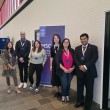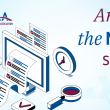The MCAA response to the call for evidence on the ERA Act

On 25 July 2024, the Marie Curie Alumni Association (MCAA) and the European Council for Doctoral Candidates and Junior Researchers (Eurodoc) issued a joint statement highlighting their shared priorities for the upcoming European Research Area (ERA) Act. With ongoing discussions on the Act and the European Commission’s current open call for evidence on the ERA Act, the Association takes the opportunity to reiterate its recommendations.
The ERA Act will be a cornerstone for shaping Europe’s research and innovation landscape. It must safeguard researchers’ rights, strengthen funding, and ensure Europe remains an attractive and competitive hub for science.
The joint statement by the MCAA and Eurodoc identifies six priorities that must guide the ERA Act:
- Academic freedom: Scientific and academic freedom are fundamental to democracy and must be protected. At a time of democratic backsliding and rising disinformation, safeguarding researchers’ independence is vital to maintain trust in science and ensure a common basis of knowledge.
- Openness and fair competition: Research only realises its value when its results are openly shared. To strengthen overall competitiveness, Europe must promote openness in research while ensuring transparency in funding and equitable opportunities across the Union.
- Responsible use of EU funds: European research funding should translate into tangible improvements for researchers. This means guaranteeing employment and access to social security for all researchers supported by EU funds, while keeping Gender Equality Plans (GEPs) mandatory and effectively implemented.
- Attractive research careers: To remain competitive, Europe must make research careers more appealing and sustainable. Doctoral candidates and Early Career Researchers (ECRs) should be recognised as professionals, with fair salaries, automatic recognition of degrees, and EU-wide access to social security that enables mobility and collaboration.
- Increased investment in research and innovation: Long-term civil investment in research and innovation is essential. Meeting the target of 3% of GDP investment in R&I, with at least 1,25% from the public sector, is crucial to secure Europe’s competitiveness and knowledge-based future.
- Independence of the ERC and the MSCA: The European Research Council (ERC) and the Marie Skłodowska-Curie Actions (MSCA) are globally recognised for their excellence and must retain their independence. Their stability, autonomy, and dedicated funding are indispensable for attracting talent and driving world-class research.
These priorities represent a clear wishlist for a more sustainable and inclusive ERA. They reflect the organisations’ shared conviction that researchers are at the heart of Europe’s knowledge economy, and that investing in their careers, rights, and independence will benefit society as a whole.
The MCAA and Eurodoc call on policymakers and stakeholders to take these recommendations into account in preparing the ERA Act. They also encourage their members to contribute to the European Commission’s open consultation, available here.
About the MCAA
The Marie Curie Alumni Association (MCAA) is a global network of researchers who have benefited from or are benefiting from the Marie Skłodowska-Curie Actions (MSCA). The MCAA supports and contributes to advancing knowledge for a global, diverse, and informed society. Its primary focus is to support its members’ career development, offer networking opportunities, and contribute to shaping research and innovation policies in the EU. Currently, the MCAA has over 23,000 members from 150+ countries, at all career stages and from diverse research fields.
About Eurodoc
Eurodoc, the European Council of Doctoral Candidates and Junior Researchers, is a grassroots federation of national associations of Early Career Researchers (ECRs) from 24 countries across Europe. Eurodoc was established in 2002 and is based in Brussels. As a representative of doctoral candidates and junior researchers at the European level, Eurodoc engages with all major stakeholders in research, higher education, and innovation in Europe.


